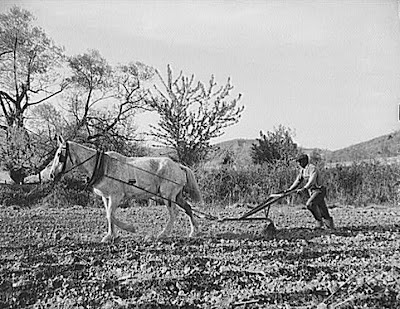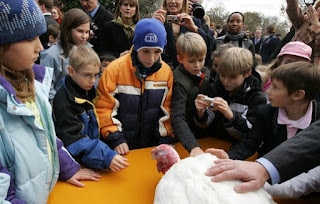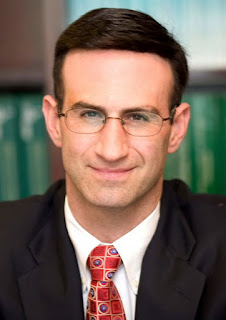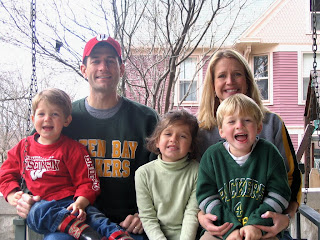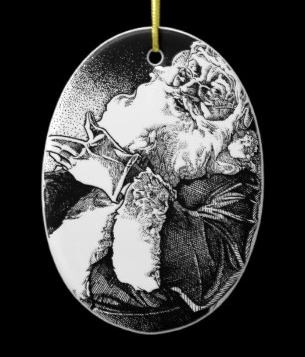| Daily Press Briefing Sean McCormack, Spokesman Washington, DC November 20, 200810:42 a.m. EST. |
MR. MCCORMACK: Good morning, everybody. I don’t have anything to start off with, so I can --
QUESTION: Can you tell us what the discussions are like on the Somalia piracy issue, what’s going on now? There seems to be some movement at the UN or --
MR. MCCORMACK: Well, there’s --
QUESTION: The Secretary General’s report yesterday --
MR. MCCORMACK: Right, there’s a – there’s a renewal of a Security Council resolution, and I can get the exact number for you – 1816, which was passed specifically to deal with Somali piracy. I guess we passed two of these up at the UN, 1816 and 1838. So – and that’s coming up for renewal. We’re working on the text of the renewal internally. As I’ve said over the past couple days, we’ve – the Secretary got together a little group led by Eliot Cohen to try to take a look at what might be done. Once you start digging into this issue, it’s very complex and it’s a very complicated issue in terms of finding the right solutions.
Just to review, we are participating in a NATO task force that is escorting humanitarian shipments into Somalia. We do have ships in the air, as do other countries. You’re still dealing with a million square miles of ocean to cover, and it’s still a very difficult problem. When ships encounter, you know, piracy and the pirates are firing on those ships, then they’re free to fire, as we saw with the Indian Government yesterday.
So we’re trying to, as a government, working with other governments, get a handle on this. It’s a serious issue. It’s not going to be something the United States solves alone. And it’s something that the international community truly has to grapple with, and we’re – we’re trying to. We’re trying to via the Security Council as well as other mechanisms.
QUESTION: The Secretary General is talking about a UN peacekeeping force to replace the --
MR. MCCORMACK: In Somalia?
QUESTION: Yeah.
MR. MCCORMACK: Well, clearly --
QUESTION: -- to replace the current UN-authorized --
MR. MCCORMACK: Right.
QUESTION: It’s an African Union force.
MR. MCCORMACK: Right. We have – we’ve been supportive of that and --
QUESTION: Supportive of his --
MR. MCCORMACK: Of – we --
QUESTION: -- desire to make it a UN force?
MR. MCCORMACK: Of having a peacekeeping force in there. I have to admit I have not seen the proposal to make them blue-helmeted, and I’ll look into that particular question for you. But you raise an important point, and that is that the chaos in Somalia certainly has an effect on what’s happening out in the Gulf of Aden. And we want to try to address both issues. You could say that the piracy is a symptom of what’s going on in Somalia, so there are no easy answers to either of those.
One step in the right direction is getting some peacekeeping forces in there. I know the Ethiopians are still there and they want to leave, so to try to help stabilize the situation in Somalia, which we think over time will have some effect – positive effect on what’s going on in the Gulf of Aden. So we’re working – as you point out, we’re working on a number of different fronts here. And I’ll check for you on the blue helmet question.
QUESTION: What’s the current condition under which U.S. forces, U.S. Naval forces, can fire? I mean, can they go seek out --
MR. MCCORMACK: You have to talk --
QUESTION: -- these small vessels?
MR. MCCORMACK: Talk to DOD about the rules of engagement. You know, I – really, I am not well versed in maritime law, and DOD probably will want to talk about their own rules of engagement.
Okay. Gollust, there you go.
QUESTION: There has been kind of a surge of reports in recent days about political unrest in Nicaragua following an election that is disputed.
MR. MCCORMACK: Right.
QUESTION: And now, there are reports that forces loyal to Ortega are using strong-arm tactics against opponents. I’m just wondering whether that’s a matter of concern for --
MR. MCCORMACK: Yeah, it is, and it’s clearly – that’s clearly a negative development. There are real concerns about the integrity of the vote. I think we’ve talked about that, and others have talked about that as well. And the solution – the solution is not to try to rally pro-government forces to suppress peaceful dissent, people who are merely trying to raise legitimate questions about how the vote proceeded and the counting, the post-election activities.
So that’s not the answer. The answer is to consider seriously what might be done to address the legit – these legitimate concerns, whether or not that involves a recount with international observers, that kind of thing. So that is the proper pathway to go down, not to try to encourage nongovernmental forces sympathetic to the government to try to suppress peaceful dissent.
Nina.
QUESTION: Sean, on Iran, The New York Times is reporting today that they have this – enough --
MR. MCCORMACK: Right.
QUESTION: -- fissile material for one – potentially one nuclear bomb.
MR. MCCORMACK: Right.
QUESTION: Any reaction to that?
MR. MCCORMACK: Well, it’s concerning, and this is a matter that will be taken up next week at the IAEA Board of Governors meeting. And we would urge the Board of Governors to send a very strong message to Iran that they must comply with the demands of the international community. Certainly, we will be working within the Security Council to determine what else might be done. And of course, we will continue to look at ourselves - what further steps might be taken in the financial sanctions area to try to prevent – cut off that pathway for Iran to develop a nuclear weapon, and work with other countries to do that as well.
You know, in terms of the estimates, how much LEU, low enriched uranium, do you need potentially for a – one nuclear weapon, I’m going to leave that to the experts. I think there are varying estimates just in that news article that you cited. You know, some said it was enough, others said it was not enough but close. In any case, you don’t want Iran to get close, and that’s why we’ve been pursuing the policy that we have been.
QUESTION: Where are we with the P5+1? Can we expect a ministerial level meeting anytime soon?
MR. MCCORMACK: Nothing scheduled at this point. You know, we continue to consult and to urge action. But you know, at this point, I don’t have anything to report in that regard.
Sue.
QUESTION: Ukrainian President Yushchenko today said that they still want a Membership Action Plan --
MR. MCCORMACK: Right.
QUESTION: -- for NATO. Have you decided what approach you’re going to take on that at the foreign ministers meeting coming up?
MR. MCCORMACK: I don’t think we’ve changed our approach. Let me see if there’s anything more we’ll want to say about that. Obviously, we’re going to have the NATO ministerial coming up in the first week of December.
QUESTION: Do you support a Membership Action Plan for Ukraine?
MR. MCCORMACK: We haven’t changed our position.
Yes, sir.
QUESTION: Are there details on the Secretary’s meeting with Seif al-Islam Qadhafi?
MR. MCCORMACK: Yeah, I don’t – I don’t have a whole lot of details. I talked to David Welch just briefly about the meeting. They talked about the broad range of U.S.-Libya relations. They also talked about developments within Libya itself. The Secretary did raise the case of Fathi al-Jahmi, as did David Welch earlier this week. And it’s an issue that we have raised consistently over time, and we will continue to raise it.
QUESTION: Is there any reason behind the timing of the meeting? I guess his visit to Washington was a private visit.
MR. MCCORMACK: Right.
QUESTION: Was there any specific reason behind his visit right now or why the Secretary chose to meet with him?
MR. MCCORMACK: Well, this was his initiative. He decided to come to the U.S. He’s having a variety of meetings. The Libyan Embassy or he can describe those meetings for you, but I think meeting with sort of the spectrum of people you might expect here in Washington in the Executive Branch, up on the Hill, as well as in the NGO community. So the decision to come here was his, his alone, and the Secretary decided to meet – take the opportunity to meet him while he was here.
QUESTION: Can I ask just one more on that?
MR. MCCORMACK: Yeah, sure.
QUESTION: I mean, is the Secretary in the habit of meeting with the sons of leaders who have no official positions in government and raising --
MR. MCCORMACK: It --
QUESTION: -- and raising cases of political prisoners?
MR. MCCORMACK: It happens. You know, it happens from time --
QUESTION: Well, why would she raise a case with someone who has no official role in government?
MR. MCCORMACK: (Laughter.) Right, Matt. Look, he has – he’s the son of the leader of Libya.
QUESTION: And is she running around seeing, you know --
MR. MCCORMACK: Look, I can point to – I can point examples to you where family members who are important figures in their own societies meet with Executive Branch officials. I think there’s a long record of Republican and Democratic doing that. He is head of the Qadhafi Foundation, which is an important institution within Libya. So again, while he may not hold an official government position, clearly, he is a person of influence within Libya. And --
QUESTION: So she asked him to use his influence with his father to get --
MR. MCCORMACK: No, she didn’t. That’s not what we do in these meetings as the Secretary of State. You don’t proscribe something. You say, look, this case is an issue of concern, we urge this person’s release. The Secretary has done – did that today. David Welch has done it this week, and he has – she and others have consistently raised the case, as they do in countries around the world, whether it’s, you know, China or any other country around the world where we have human rights concerns and we have an ongoing bilateral relationship. That’s – you know, that’s how the business of diplomacy works.
And you know, I get asked about this question, and I try to inform you as best I can about what we’re doing. But our attitude isn’t to stand up here and try to make headlines and get headlines while we raise this issue and -- you know, and to beat people over the head in public. Sometimes that’s – sometimes that’s an effective strategy. But our focus is on effective action, actually accomplishing things rather than trying to get up here and grandstand.
QUESTION: No, understood. But I guess my question is: When was the last time the Secretary met with the son of a leader and raised a – raised any case of policy?
MR. MCCORMACK: I can’t – I can’t give you a specific example. I can, you know – I don’t want to single anybody out, but I can think of a couple examples of a time Executive Branch senior officials have met with family members who happen to be influential within their own society.
Yeah.
QUESTION: More on her meetings with Moratinos and Solana, can you give us any details what she will discuss?
MR. MCCORMACK: With both, I think they’ll talk about the transatlantic relationship. With Mr. Solana, there’s a lot on the plate there, and talk about the Balkans, talk about Iran, talk about the Middle East. I think the Middle East will be the topic of conversation with Foreign Minister Moratinos. I know that’s a particular area of interest for him as well. So it will cover – it’s – there’s no shortage of things to talk about in these meetings. But that’s sort of the general palette.
QUESTION: We’ll get a readout afterwards?
MR. MCCORMACK: We’ll try to get you something, sure.
Yeah.
QUESTION: South Africa says it’s going to withhold aid from Zimbabwe until they have a representative government. Do you approve of that sort of punitive measure by a regional government?
MR. MCCORMACK: Well, what we approve of it is countries in the region or around the globe using their leverage to try to bring about some change of behavior in Zimbabwe. And I think you just had Ambassador McGee up here. I wasn’t here for the briefing, but I suspect he probably gave you the same message.
QUESTION: Do you have any readout from the Geneva talks on Georgia?
MR. MCCORMACK: Yeah, Dan Fried – I think there’s a transcript, and I don’t really have anything to add to what he said; that’s the firsthand account. I mean, it’s basically a first step. That’s the bottom line.
Yeah.
QUESTION: Are you aware of any travel plans for Sung Kim to Seoul next week? And is there any prospect for a heads of delegation meeting before the end of the year?
MR. MCCORMACK: Yeah, still working on the timing with the Chinese on the heads of delegation meeting. In terms of Ambassador Kim’s travel, I’ll be happy to check for you.
QUESTION: Is there anything – can I have this last one?
MR. MCCORMACK: There you go.
QUESTION: The daily transition question: Has there been anything new on, you know, meetings, briefings scheduled?
MR. MCCORMACK: Just, you know, the -- continuing, you know, the business of the transition. Look, I’m going – I’ll leave it to the transition folks to describe what they’re doing. You know, things like meeting with the Secretary, I’ll obviously try to keep you informed of those – those kind of high-level interactions by providing material, briefings going on. You know, we’re committed to making sure that they have the information they think they need to do the job.
QUESTION: Have you released the text of the Iraqi SOFA?
MR. MCCORMACK: I don’t believe we have. You can check with the White House.
QUESTION: It has to come from there?
MR. MCCORMACK: Check with the White House.
QUESTION: Didn’t you all negotiate it or --
MR. MCCORMACK: We participated. That was – it was a broad interagency effort.
QUESTION: Thank you.
MR. MCCORMACK: Yep.
(The briefing was concluded at 10:55 a.m.)
dpb # 197
Released on November 20, 2008











